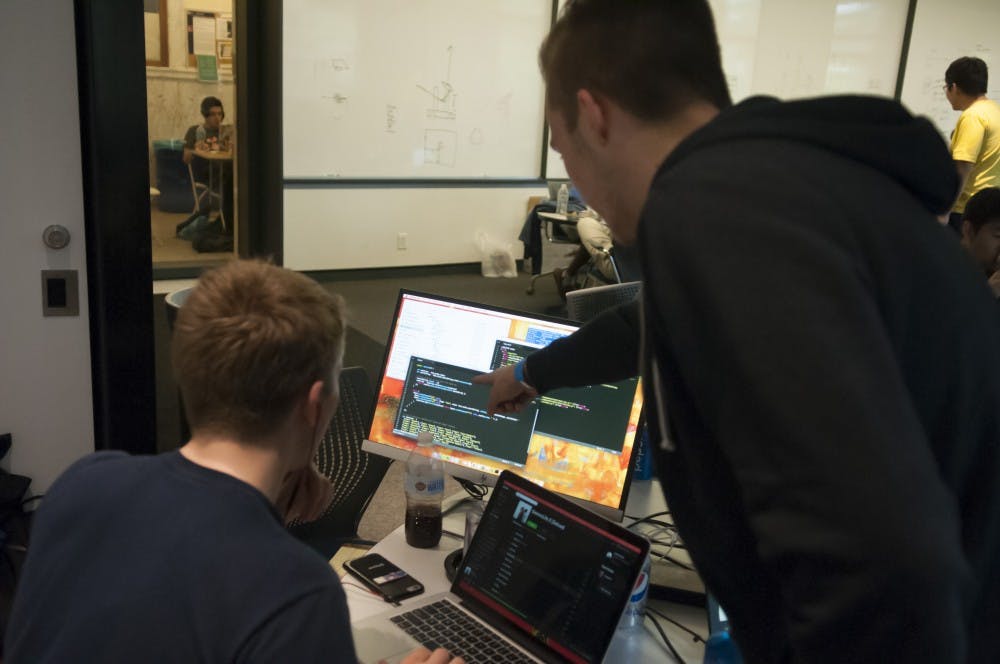
PennApps — the weekend-long hackathon at Penn that happens twice a year — drew to a close in Irvine Auditorium on Sunday.
PennApps has been a Penn tradition since 2009. The event joins students from various universities and even high schools into teams to create a software or hardware solution to a problem of the team’s choice.
The final creations are judged on a rubric of originality, usefulness, technical difficulty and user experience. This year, the judges selected 10 of the projects from the weekend to display on stage before the awards ceremony.
Projects noted by the judges at this year’s hackathon included a “smart” insulin reminder app for diabetics and an app that can perform an eyeglasses prescription test with a downloadable template to use on cardboard.
The winning team was SpeakAR, which created a wearable translator hololens — goggles that convert communication between text, spoken, word and sign language using GIFs and text bubbles that appear in front of the user’s vision.
Max Gilbert, a second-year graduate student at Penn, took second place along with his team, Project Em. The team is a collective of PennApps veterans, including some who have started their own hackathon. Their entry was a game controlled by voice commands, which directed a virtual avatar to the speaker.
“We’ve made a lot of games but this one incorporated technology that was appropriate to PennApps,” Gilbert said. The team placed higher this year than ever before at a PennApps competition.
Vivian Ge, a Wharton and Engineering junior, was on the organizing team of PennApps last semester and now serves on the executive board for marketing, promoting the event on social media and coordinating logistics. Even though the competition accommodates students from all over the country and occasionally abroad, Ge said that the event ran smoothly.
“We started right after the previous PennApps basically,” Ge said. “We had over 1,500 hackers check in this time so it’s really large.”
This year’s PennApps was the first for freshman Shank Sharma, a Rutgers University student studying computer science. He was surprised by the businesslike conduct of students at PennApps.
“The people at PennApps don’t really talk as much to you,” Sharma said. “I met a bunch of people, but not as much as I would have at other hackathons.”
But the serious atmosphere didn’t permeate the whole event. Peter Boyce II, an investor at General Catalyst Partners and a co-founder of Rough Draft Ventures, weighed in on the eternal debate in the technology world from the judges’ panel: whether “gif” is pronounced with a hard or soft G.
“I have to share this,” Boyce said during a finalist’s presentation. “They [investors at GIPHY] believe it is hard G for hard G’s and so to call it GIPHY and GIFs.”
The Daily Pennsylvanian is an independent, student-run newspaper. Please consider making a donation to support the coverage that shapes the University. Your generosity ensures a future of strong journalism at Penn.
DonatePlease note All comments are eligible for publication in The Daily Pennsylvanian.





